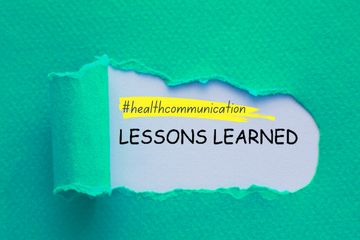You’re reading Lessons Learned, which distills practical takeaways from standout campaigns and peer-reviewed research in health and science communication. Want more Lessons Learned? Subscribe to our Call to Action newsletter.
A recent study in the Journal of Communication explored how our preexisting biases towards scientific authority influences how effective message repetition is in persuading us to take action (2023, DOI: 10.1093/joc/jqad025). To test this, the research team repeatedly exposed 845 people to messages about the human-induced effects of climate change and mitigation strategies.
What they learned: Among people who were unfavorably biased toward scientific authority, repeated exposure to climate change messages made the message more challenging to comprehend and exhausting to read. Consequently, this made them less likely to support climate change mitigation strategies. The opposite was true for those who were favorably biased toward scientific authority. Repeated message exposure made the message easier for them to understand and less exhausting to read. This resulted in an increased likelihood to support climate change mitigation.
Why it matters: This finding challenges the assumption that more exposure always leads to better persuasion. In practical terms, especially in public health or political campaigns, maximizing exposure may backfire among those resistant to the message.
➡️ Idea worth stealing: If you know someone agrees with your message, repeat the message to persuade them to act. For those who disagree, don’t double down; instead, figure out a new strategy.
What to watch: How future public health campaigns use social media algorithms and other tools to customize message exposure for different audiences.




